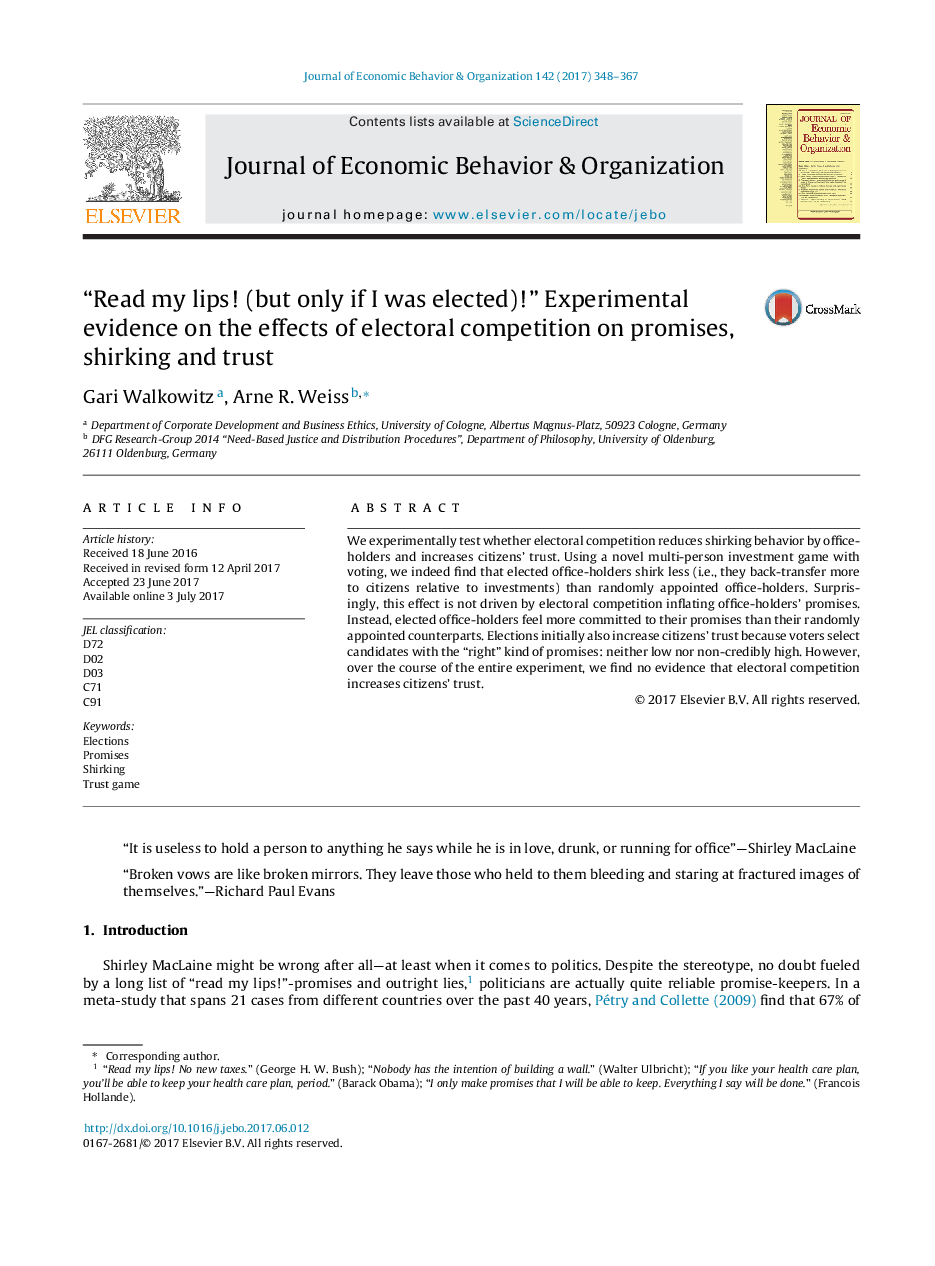| Article ID | Journal | Published Year | Pages | File Type |
|---|---|---|---|---|
| 5034470 | Journal of Economic Behavior & Organization | 2017 | 20 Pages |
â¢Through a novel experiment, we show that even without reelection concerns electoral competition reduces office-holders' shirking behavior and initially increases citizens' trust.â¢Elected office-holders shirk less because they feel more committed to their promises than their randomly appointed counterparts.â¢The short-term effect on citizens' trust is driven by voters choosing candidates whose campaign promises are neither low nor noncredibly high.
We experimentally test whether electoral competition reduces shirking behavior by office-holders and increases citizens' trust. Using a novel multi-person investment game with voting, we indeed find that elected office-holders shirk less (i.e., they back-transfer more to citizens relative to investments) than randomly appointed office-holders. Surprisingly, this effect is not driven by electoral competition inflating office-holders' promises. Instead, elected office-holders feel more committed to their promises than their randomly appointed counterparts. Elections initially also increase citizens' trust because voters select candidates with the “right” kind of promises: neither low nor non-credibly high. However, over the course of the entire experiment, we find no evidence that electoral competition increases citizens' trust.
